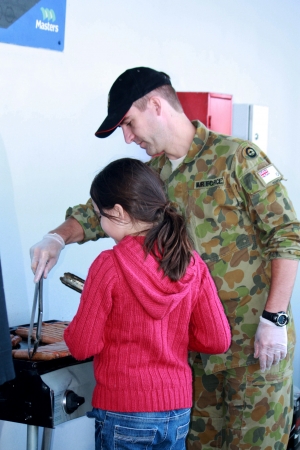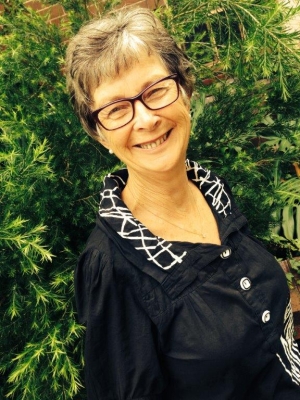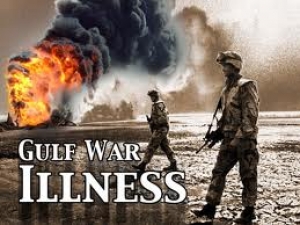Administrator
Support for AFOM
Despite being a bleak and cold day a wonderful day was had by all, AFOM Directors and wonderful volunteers at Masters at Maitland.
A great first time at BBQ fundraising.
A big thanks to our current serving Director Rob McDonald and his wife Emma for all the organising they did.
Looking forward to our next one!
Up date on Study
Welcome to the first newsletter from the Vietnam Veterans Family Health Study. We want to keep in touch and let you know how the study is progressing
Up date on Study
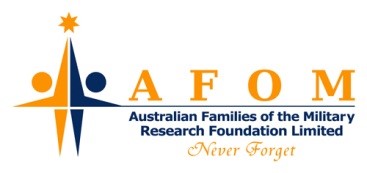
Welcome to the first newsletter from the Vietnam Veterans Family Health Study. We want to keep in touch and let you know how the study is progressing
Initiative from AFOM
An initiative from AFOM.
Good news for those in need of information and support in the Hunter Area NSW.
If you would like a workshop like this (even outside of NSW) please email those on the Information Flyer or use our contact button on this site.
The AFOM Team
Di McArtney
AFOM is pleased to announce our new Secretary and Vice President- Di McArtney. She brings with her a wealth of information and knowledge to help AFOM with its objectives.
Di's Bio
Dr Sue Outram
Academic Qualifications
Ph.D. University of Newcastle, School of Medicine & Public Health (2003)
Certificate of General Nursing, Prince Henry, Prince of Wales Teaching Group, Sydney. (1975)
Bachelor of Arts Degree (Psychology & Sociology), University of New South Wales (1972)
Mental health of US Gulf War veterans 10 years after the war
Background Gulf War veterans reported multiple psychological symptoms immediately after the war; the temporal course of these symptoms remains unclear.
Aims To assess the prevalence of war-era on set mentaL disorders in US veterans deployed to the Gulf War and in non-deployed veterans10 years after the war.
Method Mental disorders were diagnosed using structured clinical interviews.Standard questionnaires assessed symptoms and quality of life.
Results Gulf War-era on set mental disorders were more prevalentin deployed veterans (18.1%, n¼1061) compared with non-deployed veterans (8.9%, n¼1128).The prevalence of depression and anxiety declined 10 years later in both groups, but remained higher in the deployed group, who also reported more symptoms and a lower quality of life than the non-deployed group. Remission of depression may be related to the presence of comorbid psychiatric disorders and level of education. Remission of anxiety was related to treatment with medication.
Conclusions Gulf War deployment was associated with an increased prevalence of mental disorders, psychological symptoms and a lower quality of life beginning during the war and persisting at a lower rate 10 years later.
Declaration of interest None.
Funding detailed in Acknowledgements.
Young People’s Views on Electronic Mental Health Assessment: Prefer to Type than Talk?
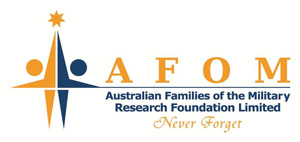
Young People’s Views on Electronic Mental Health Assessment: Prefer to Type than Talk?
For mental health professionals to provide personalized early interventions, young people need to disclose sensitive information to a clinician they are unli-kely to have yet formed a relationship with. We conducted in-depth qualitative interviews with 129 young people aged 12–25 years from several sites across Australia to gauge views on whether young people thought that an electronic psychosocial assessment tool could help them initially disclose personal information.
Why is it so important that a new official account of the Agent Orange controversy be commissioned.
Why is it so important that a new official account of the Agent Orange controversy be commissioned.
Was Phill Thompson greedy and dishonest?
Those who knew him would probably describe him in terms opposite to these; terms like generous, honest, a man of integrity.
But greedy and dishonest is how the Official History describes Phill.
Phill Thompson was the national leader of the campaign to have Vietnam veterans' exposure to Agent Orange acknowledged as potentially harmful.
Young People's Views on Electronic Mental Health Assessment: Prefer to Type than Talk?
For mental health professionals to provide personalized early interventions, young people need to disclose sensitive information to a clinician they are unli-kely to have yet formed a relationship with. We conducted in-depth qualitative interviews with 129 young people aged 12–25 years from several sites across Australia to gauge views on whether young people thought that an electronic psychosocial assessment tool could help them initially disclose personal information. Additionally, we were interested in whether young people from different demo-graphic groups held similar views around using the e-tool.
Results provided support for the use of an e-tool, with most young people stating that it could help in the disclosure of particularly embarrassing problems.

